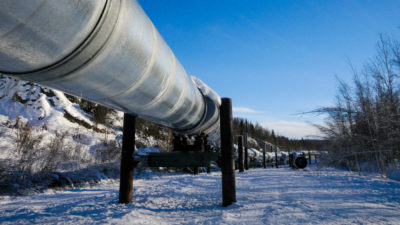In less than a month, oil surged to a multi-year high of over US$75 per barrel and subsequently pulled back to see the international Brent price trading at less than US$60 per barrel. There are signs that crude will soften further during 2020. Some pundits are even claiming that another oil price collapse will occur because of growing oil production and significantly weaker-than-anticipated demand.
Growing supply
It appears that the risk premium priced into crude because of higher Middle East tensions and the threat of war between Iran and the U.S. has fully deflated, meaning that an oil recovery could be a long way off. Even OPEC and Russia’s commitment to shave another 500,000 barrels daily off their collective output, announced toward the end of 2019, has done little to buoy prices. In the wake of oil’s latest decline, OPEC is reportedly considering making further production cuts to lift the price of crude; it’s speculated that the cartel and its allies are considering whether to extend the latest cuts until the end of June.
Many energy bulls are betting on a U.S. shale oil bust, which will trigger a sharp decline in oil supply. The U.S. shale oil industry has proven to be far more resilient than predicted, and there are signs that non-conventional production will keep growing. U.S. oil production is expected to grow by four million barrels daily by the end of 2024 to 16 million barrels per day, while it is forecast that oil exports will double, hitting nine million barrels daily. Production among non-OPEC nations, including Brazil, China, and Canada, is also growing, which will apply further pressure to prices.
Weaker demand
If increased supply weren’t bad enough for oil, there are considerable fears about whether demand will expand as anticipated. The rise of renewable sources of energy and the growing popularity of electric vehicles poses a long-term threat to oil consumption, while softer manufacturing activity in major industrial economies is weighing on the short-term outlook.
The outbreak of the coronavirus in China has weighed heavily on oil, because there are concerns that it will cause growth in the world’s second-largest economy to soften. The Economist believes that it could shave up to 1% of China’s 2020 gross domestic product (GDP) growth rate.
A weaker global economy, with the International Monetary Fund (IMF) recently revising its 2020 GDP growth downward by 0.1% to 3.4%, also doesn’t bode well for oil, particularly when there are credible concerns that a global recession could emerge. There is every likelihood that oil will weaken further and could even collapse, with it becoming increasingly likely that Brent could fall to US$$55 per barrel, which would see the North American benchmark plunge to under US$50.
That would be a poor outcome for many Canadian energy stocks, which have been roughly handled by the market. Many were banking on a modest oil recovery in 2020 with drillers like Baytex basing their annual guidance on a forecast average annual WTI price of US$60 per barrel. A sustained slump could have a marked impact on Baytex and its plans to reduce its significant pile of debt totalling $1.9 billion when including bank loans, leases, and long-term notes.
Of even greater concern is that Baytex has substantial near-term debt maturities of US$400 million in 2021, $300 million during 2022, and another US$400 million in 2024. To meet those obligations, the driller needs higher oil so that it can generate enough free cash flow to meet those approaching financial liabilities, or it may be forced to fund them through assets sales or obtaining additional financing at less-than-favourable terms. While many Canadian upstream oil explorers and producers were forecasting that WTI could average US$60 per barrel during 2020, Baytex is the most vulnerable because of its considerable debt and looming material maturities.
Looking ahead
Weaker oil is here to stay, and the need for OPEC to continue cutting production indicates that it will be some time before the global supply glut comes to an end. There is even the threat of another price collapse, which makes it imperative that energy investors avoid heavily indebted drillers with looming large debt repayments.








